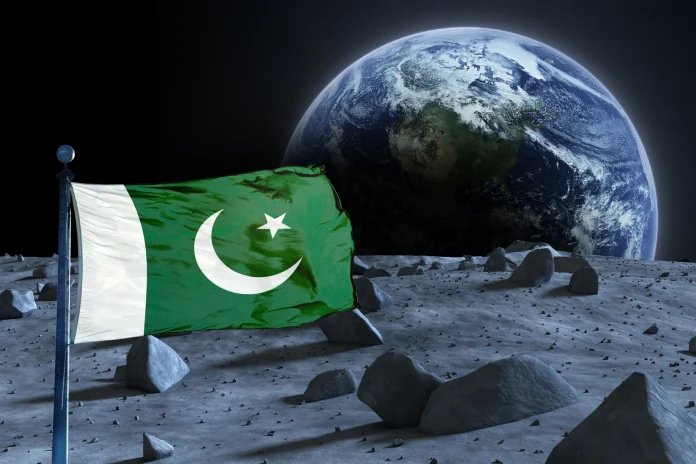Pakistan successfully entered the lunar arena on 3rd May, marking a first milestone in the country’s space exploration journey. The Pakistan moon mission is a collaboration with China’s Chang’e-6 lunar probe, carrying Pakistan’s first lunar satellite, the iCube Qamar (or iCube-Q for short).
Pakistan Lunar Mission Launch
Weighing only 7 kg, the iCube-Q is a CubeSat—a little satellite. The iCube-Q, created by Shanghai University in China and the Pakistan Space and Upper Atmosphere Research Commission (SUPARCO) as a cooperative project, symbolizes Pakistan’s expanding aspirations in space exploration.
The iCube-Q is essential to scientific observation, but China’s Chang’e-6 mission is focused on gathering lunar samples from the moon’s far side—a historic first in and of itself. “This is Pakistan’s first step into space,” Prime Minister Shehbaz Sharif said, expressing his gratitude to the engineers and scientists involved in the project. “[This launch] demonstrates the dedication and hard work of our talented individuals striving in this field.”
Also: Odysseus Moon Mission Concluded as First Private Moon Lander
Equipment Used in iCube-Q
Two optical cameras on the iCube-Q are intended to take in-depth pictures of the lunar surface. The data these photographs can collect for scientific study will be extremely significant, and they may give light on previously undiscovered aspects of the lunar resource distribution and geological structure.
A core committee member of the Institute of Space Technology (IST), Dr. Khurram Khurshid provided further details on the mission’s goals. “Our satellite will reach the lunar orbit in five days and will circle around the moon for about three to six months,” he claimed. “The data collected by the iCube-Q will contribute to our understanding of the lunar environment.”
There is more to the iCube-Q project than just taking pictures of the moon. In addition, IST officials state that the satellite is intended to “obtain lunar magnetic field data.” In order to “establish a lunar magnetic field model,” this data will be misused, setting the stage for upcoming international lunar mission cooperation.
First Pakistan Moon Mission
The iCube-Q’s successful launch represents a turning point in Pakistan’s space program. This mission highlights the nation’s expanding capability in space exploration and satellite development. The iCube-Q gathered invaluable scientific data that will surely spark future research and open the door for ever more ambitious space projects. Although the iCube-Q is an important first step, Pakistan has more ambitious space plans than just a single lunar mission. Experts predict that the iCube-Q’s success will probably prompt the creation of more sophisticated satellites and perhaps even crewed lunar expeditions in the far future.
Also: ESA’s Juice Mission to Jupiter Unlocks Unseen Secrets
But there remain limitations like, comparing Pakistan to other spacefaring nations, there are budget resource limits. For Pakistan to maintain its momentum and carry out additional space exploration, foreign cooperation and funding in its space program are essential. Pakistan moon mission signifies a giant leap for the nation. With the iCube-Q’s successful mission to lunar orbit, Pakistan has entered a new age of space exploration, opening the door to more scientific research and space exploration in the future.



